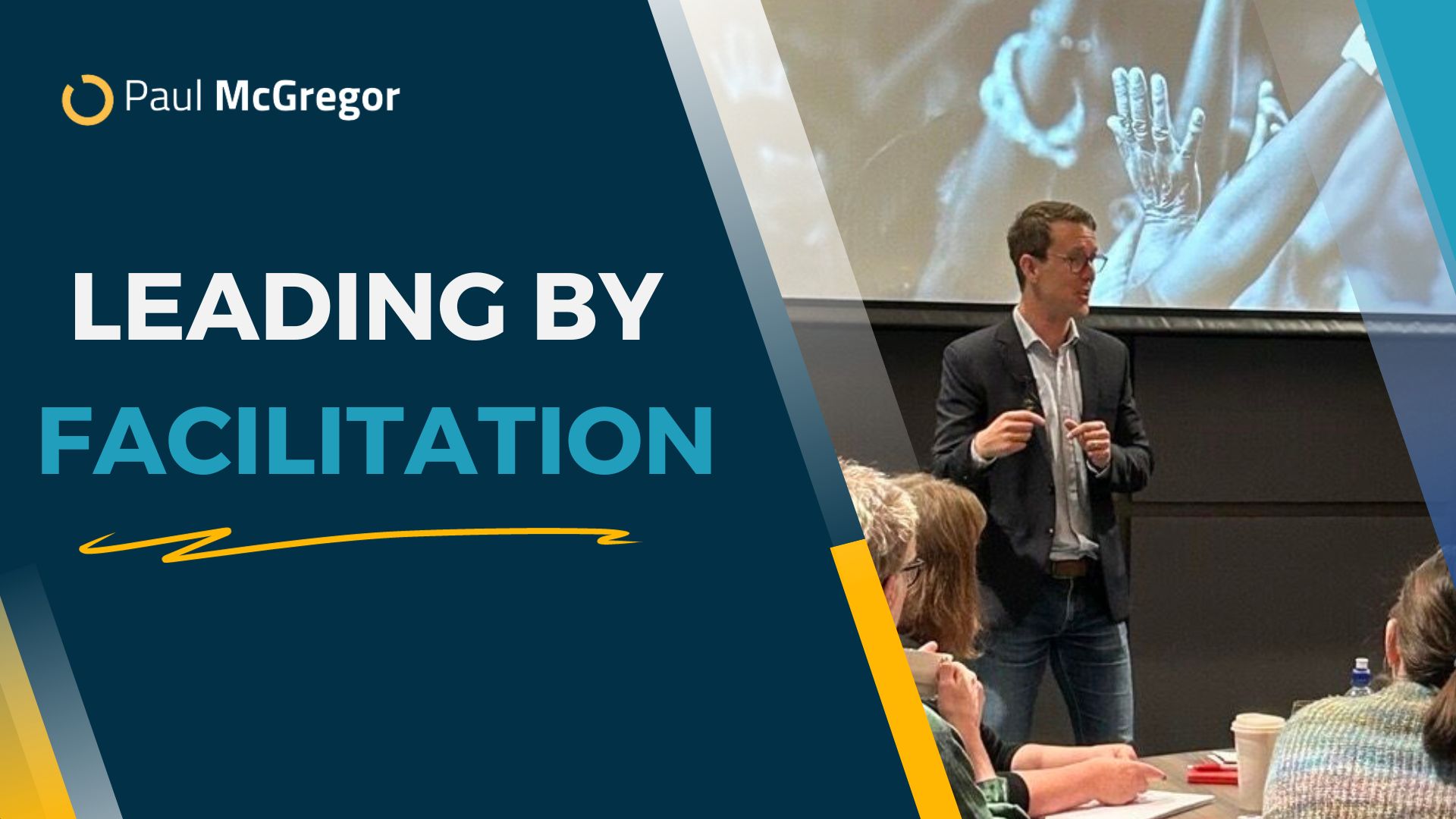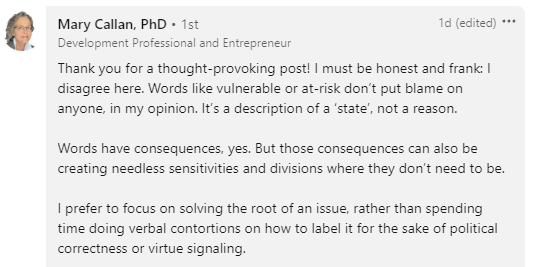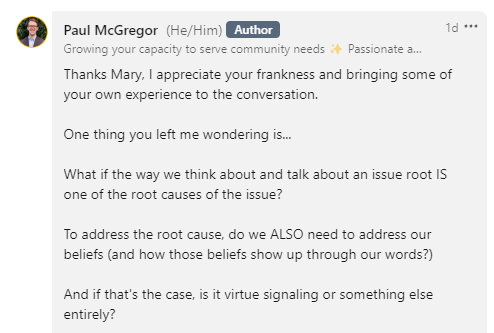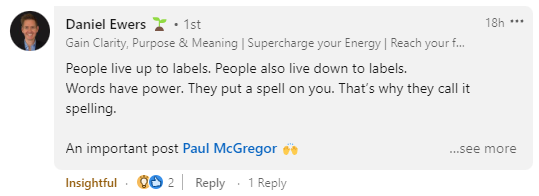🙊Words create worlds

What world are your words creating?
I was all set to forget about LinkedIn this year to focus on writing this jolly book. But last week I posted about some well-meaning phrases that really grind my gears.
Every industry has jargon. Language that exists as a shortcut. But sometimes these shortcuts have unintentional impacts. The four phrases I called out were:
- "Dealing with"
- "Vulnerable and disadvantaged"
- "Hard to reach"
- "At risk"
The post struck a nerve, with hundreds of people commenting, reacting and sharing it. Far more than usual.
But can we be too careful?
One comment caught my attention:

To this I responded:

Abraham Joshua Heschel's family were murdered because of words
Heschel is typically credited with the saying "words create worlds."
Most people have never heard of the Polish philosopher, but he knows a thing or two about the power of words. During WW2, his sister Esther was killed in a German bombing. His mother was murdered by the Nazis, and two other sisters, Gittel and Devorah, died in Nazi concentration camps.
His whole family - dead in the space of a few years.
Heschel went on to become a renowned Jewish scholar - celebrated and read around the globe.
One of his many notable achievements was persuading the Catholic Church to change the parts of its liturgies that demeaned Jews or Judaism.
In other words, Heschel knows a thing or two about the power of words to create worlds.
Politically correct nonsense?
Being careful with our words is not 'politically correct nonsense'. It's not virtue signaling. It's not a woke leftist agenda or right-wing propaganda.

Words are powerful. As Heschel knows, words can injure. They can kill. And they can create the very problems we're trying to address in the first place.
What world do you want your words to create this year?